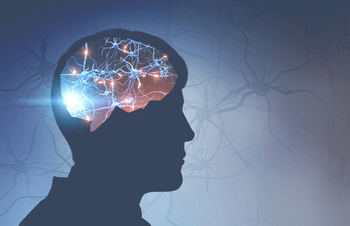Deep Breathing (Episode 96)

Guest: Kajana Satkunendrarajah, PhD
Today we’re talking with Dr. Kajana Satkunendrarajah. Kajana is an associate professor and researcher at the Medical College of Wisconsin. She is also an ally of our legislative efforts in Wisconsin to pass an SCI Research Grant bill there. We discuss Dr. Satkunendrarajah’s NIH R01 grant submission to study her lab's recent discovery of cervical level neurons connected to respiratory function. This leads us into a conversation about the process of grant submissions and the uncertainty and waiting game that all academic researchers must play. We also talk about Kajana’s broad SCI research interests, the tools she employs in her research, her current study examining the relationship between music and neuronal response, and much more!
As always, please share your thoughts with us via email at curecast@u2fp.org. Thanks for listening!
Listen on: Spotify | Apple Podcasts | Soundcloud
Bumper music: Dig a Hole by Freaque
Guest Bio
Dr. Kajana Satkunendrarajah is an Associate Professor in the Department of Neurosurgery at the Medical College of Wisconsin, where she also serves as the Associate Director of the Neuroscience Research Center. She earned her Ph.D. from The School of Medicine at Wayne State University and subsequently undertook a postdoctoral fellowship at the University of Toronto in Canada. Dr. Satkunendrarajah's research program is focused on unraveling the intricacies of neural networks governing motor behavior, both in healthy states and in the aftermath of spinal cord injuries and other neurological conditions. Her seminal discoveries include her work on cervical excitatory interneurons that undergo plasticity under respiratory stresses and can be genetically modulated to restore breathing after cervical spinal cord injury and the discovery of a novel sensory cortical-spinal circuit for locomotor control. Dr. Satkunendrarajah's research program is driven by the dual objectives of deepening our comprehension of neural control over motor behavior and harnessing this knowledge to pioneer novel therapies that bolster motor recovery in individuals affected by neurological conditions. Her work in motor control and spinal cord injury uniquely combines fundamental neuroscience, respiratory and locomotor physiology, and cutting-edge techniques such as viral manipulation, optogenetics, and chemogenetics in transgenic mouse models to manipulate neural circuits at the preclinical level. The Kajana Lab’s ultimate objective is to translate these research findings into effective treatments for spinal cord injured patients. Encouraged by promising preclinical outcomes, they are preparing to launch a phase 2b clinical trial to assess the efficacy of Nimodipine in managing spasticity in individuals with chronic spinal cord injuries.
Learn more and connect with Dr. Satkunendrarajah here:
- Website: Kajana Satkunendrarajah - Medical College of Wisconsin
- Email: Kajanas@mcw.edu
- Social Media: @Kajanasatkune
Media Coverage
-
Listen to this story about Dr. Satkunendrarajah's research on WUWM in Milwaukee. "Researchers at the Medical College of Wisconsin are examining how music can be used as a tool to restore walking movement in patients after a spinal cord injury. Dr. Kajana Satkunendrarajah discovered that neurons in the primary sensory cortex respond to discreet aspects of music."



















